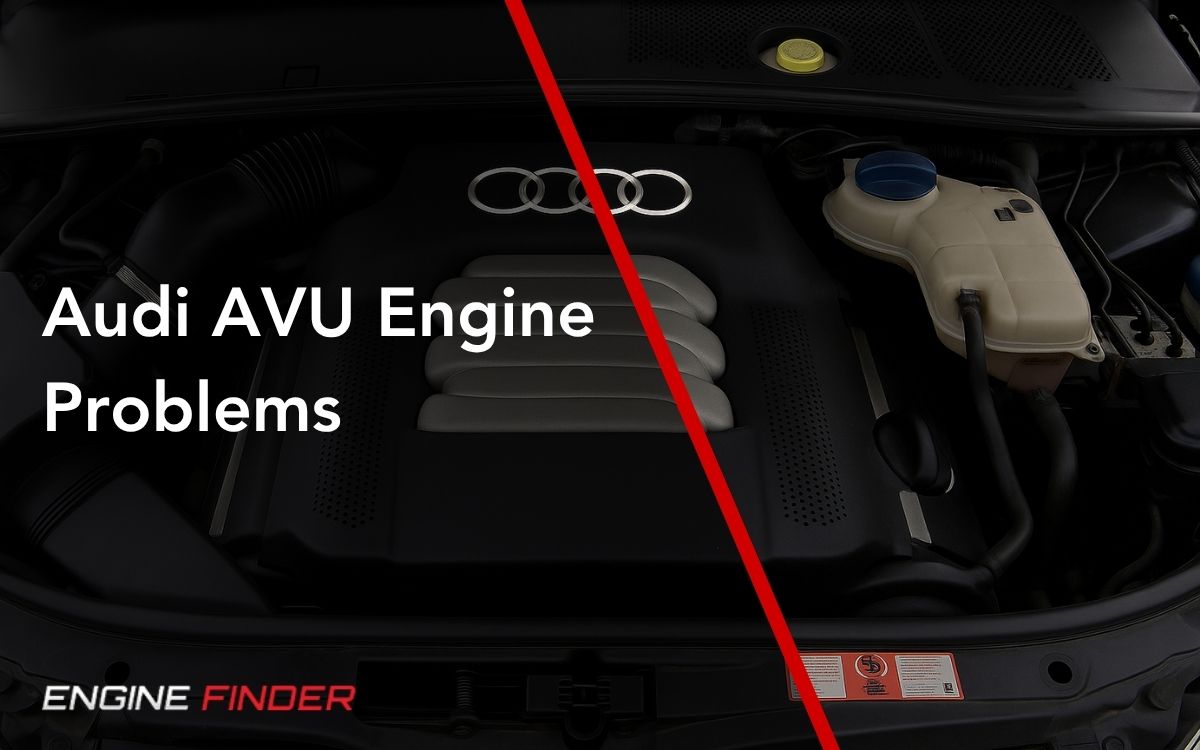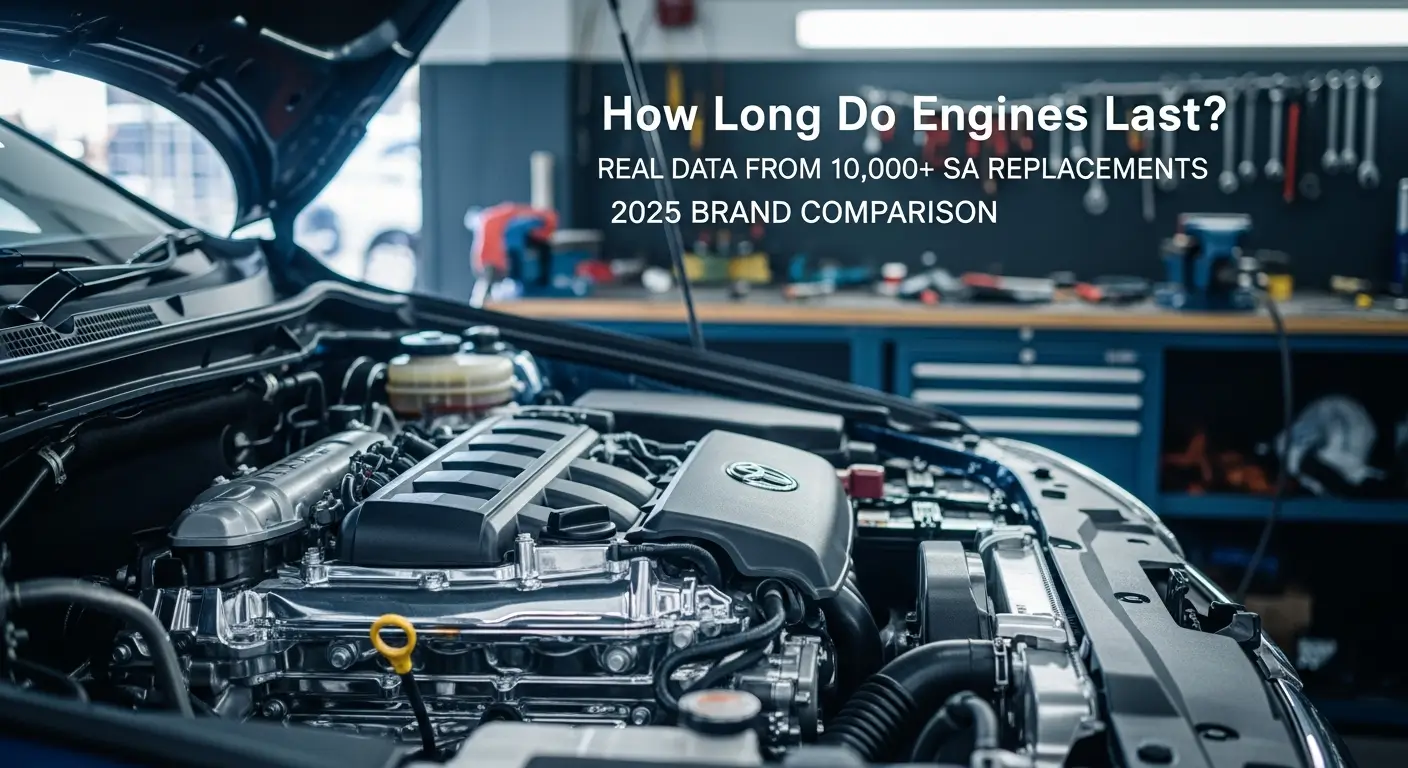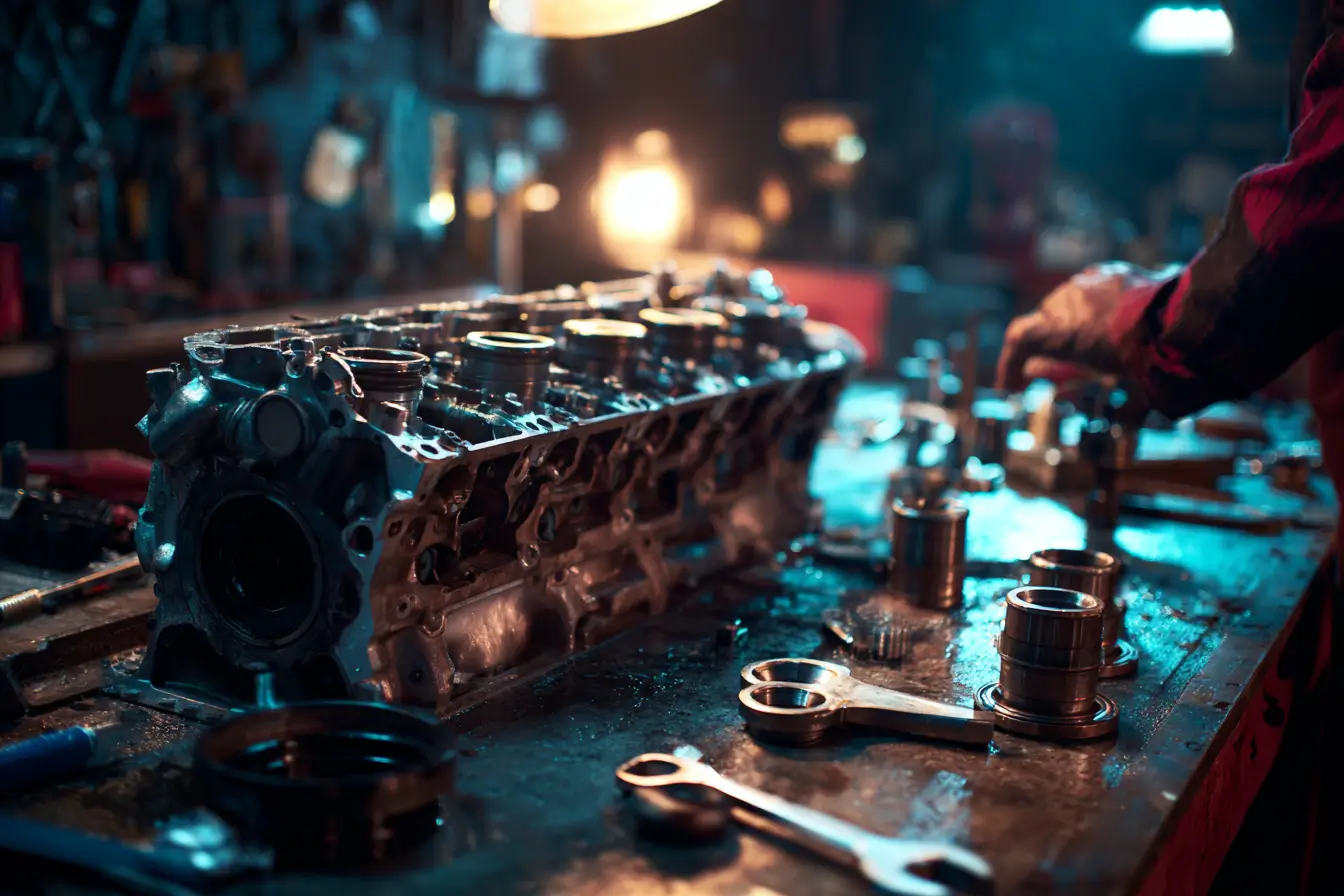
Common Audi AVU Engine Problems: Expert Solutions & Costs
Key Takeaways
| Problem | Main Symptoms | Possible Causes |
|---|---|---|
| Timing Belt Failure Risk | Engine rattling, loss of power, no start | Belt wear, tensioner failure, water pump issues |
| Oil Consumption Issues | Blue smoke, frequent oil top-ups, low oil warnings | Worn piston rings, valve stem seals, head gasket |
| Ignition System Failures | Misfires, rough idle, poor acceleration | Coil pack failure, worn spark plugs, vacuum leaks |
| PCV System Problems | Oil leaks, rough idle, increased emissions | Cracked hoses, blocked valves, breather failures |
| Cooling System Malfunctions | Overheating, erratic temperature, poor starts | Sensor failures, thermostat issues, head gasket |
The Audi AVU engine is a 1.6-liter naturally aspirated petrol engine that powered the Audi A3 8L from 2000 to 2003. As part of Volkswagen’s EA113 engine family, this reliable SOHC 8-valve powerplant delivers modest but dependable performance with 102 horsepower. While generally robust and capable of reaching 350,000+ kilometers with proper maintenance, the AVU engine has developed certain characteristic issues that owners should understand for optimal longevity and performance.
Audi AVU Engine Specifications
| Specification | Details |
|---|---|
| Engine Code | AVU |
| Engine Family | EA113 (VW Group) |
| Displacement | 1,595cc (1.6L) |
| Configuration | Inline-4, SOHC, 8-valve |
| Power Output | 75 kW (102 hp @ 5,600 rpm) |
| Torque | 145 Nm @ 3,800 rpm |
| Compression Ratio | 10.2:1 |
| Fuel System | Multi-point Injection |
| Application | Audi A3 8L, VW Golf IV |
| Production Years | May 2000 - June 2003 |
1. Timing Belt Failure Risk
The AVU engine uses a timing belt system that requires regular replacement to prevent catastrophic engine damage, as this is an interference engine design.
Causes
- Normal timing belt wear over time
- Timing belt tensioner bearing failure
- Water pump failure affecting belt alignment
- Oil contamination from leaking seals
- Exceeding recommended replacement intervals
Symptoms
- High-pitched squealing from engine front
- Metallic rattling during startup
- Sudden complete loss of engine power
- Engine will not start after belt failure
- Visible belt wear or fraying on inspection
Solution
- Complete timing belt kit replacement: R8,500 - R15,000
- Water pump replacement (recommended): R3,500 - R6,000
- Tensioner and idler pulley service: R2,500 - R4,000
- Front crankshaft seal replacement: R1,500 - R3,000
DIY Difficulty / Hours
- Timing belt replacement: High difficulty / 6-10 hours
- Requires proper timing tools and engine positioning
Critical Warning
AVU engines are interference engines. Timing belt failure will cause valve-to-piston contact, resulting in bent valves, damaged pistons, and potential complete engine rebuild requirements.
2. Oil Consumption Issues
Higher mileage AVU engines often develop increased oil consumption due to worn internal components, particularly piston rings and valve stem seals.
Causes
- Worn piston rings allowing oil into combustion chambers
- Deteriorated valve stem seals causing oil burning
- Cylinder head gasket micro-leaks
- PCV system malfunction increasing crankcase pressure
- Extended oil change intervals accelerating wear
Symptoms
- Blue smoke from exhaust during acceleration
- Frequent need for oil top-ups between services
- Oil level warning lights appearing regularly
- Spark plug fouling with oil deposits
- Excessive crankcase pressure buildup
Solution
- Piston ring replacement: R25,000 - R35,000
- Valve stem seal replacement: R12,000 - R18,000
- Head gasket replacement: R15,000 - R25,000
- PCV system overhaul: R3,000 - R6,000
DIY Difficulty / Hours
- Valve stem seals: High difficulty / 8-12 hours
- Piston rings: Professional only / 20-30 hours
Maintenance Tip
Monitor oil consumption carefully. Consumption of more than 1 liter per 2,000km indicates internal wear requiring attention before further damage occurs.
3. Ignition System Failures
The AVU engine’s ignition system, particularly the coil pack and spark plugs, requires regular attention to maintain smooth operation and prevent misfires.
Causes
- Ignition coil pack internal component failure
- Carbon fouling on spark plug electrodes
- Vacuum leaks affecting air-fuel mixture
- Worn spark plug gap affecting combustion
- Poor electrical connections at coil pack
Symptoms
- Engine misfiring during acceleration
- Rough idle and hesitation
- Reduced fuel economy and power
- Engine management warning lights
- Difficulty starting in cold conditions
Solution
- Ignition coil pack replacement: R3,500 - R6,000
- Spark plug set replacement: R800 - R1,500
- Vacuum leak diagnosis and repair: R2,000 - R4,500
- Intake manifold gasket replacement: R2,500 - R4,000
DIY Difficulty / Hours
- Coil pack replacement: Medium difficulty / 2-3 hours
- Spark plug replacement: Easy / 1-2 hours
Technical Note
The AVU engine uses a coil pack design rather than individual coils. When one cylinder misfires, the entire pack typically requires replacement for reliable operation.
4. EGR Valve Malfunction
The Exhaust Gas Recirculation system experiences accelerated carbon buildup in the CAS engine, leading to valve sticking and cooling system contamination.
Causes
- Excessive carbon accumulation in EGR passages
- EGR valve sticking in open or closed position
- EGR cooler internal contamination and scaling
- Position sensor calibration drift
- Poor diesel fuel quality accelerating deposits
Symptoms
- Excessive black smoke during acceleration
- Engine entering limp mode unexpectedly
- EGR-related fault codes (P0401, P0403, P0404)
- Reduced fuel economy and sluggish performance
- Coolant contamination from EGR cooler failure
Solution
- EGR valve replacement: R12,000 - R18,000
- EGR cooler replacement: R18,000 - R28,000
- Complete EGR system cleaning: R6,000 - R10,000
- EGR position sensor replacement: R3,500 - R6,000
DIY Difficulty / Hours
- EGR valve cleaning: Medium difficulty / 3-5 hours
- EGR cooler replacement: Professional recommended / 6-10 hours
Maintenance Tip
Regular highway driving and quality diesel fuel with cleaning additives help prevent EGR carbon buildup. Consider professional cleaning every 80,000km.
5. Turbocharger Reliability Issues
While generally robust, the variable geometry turbocharger can develop problems with the actuator mechanism and internal components, particularly in high-mileage applications.
Causes
- Turbocharger actuator motor electrical failure
- Carbon buildup affecting variable geometry vanes
- Oil contamination from engine oil leaks
- Bearing wear from inadequate lubrication
- Boost pressure sensor malfunctions
Symptoms
- Significant power loss during acceleration
- Turbocharger underboost or overboost codes
- Whistling or grinding noises from turbo area
- Blue smoke indicating oil burning
- Oil leaks around turbocharger housing
Solution
- Turbocharger replacement (remanufactured): R35,000 - R50,000
- Actuator motor replacement: R15,000 - R22,000
- Turbocharger cleaning and service: R8,000 - R12,000
- Boost pressure sensor replacement: R3,500 - R6,000
DIY Difficulty / Hours
- Actuator replacement: High difficulty / 5-8 hours
- Turbocharger replacement: Professional only / 8-14 hours
Important Warning
Continuing to drive with turbocharger failure can cause engine oil starvation and contamination. Address turbo problems immediately to prevent secondary damage.
Preventative Maintenance Tips
Regular Service Schedule
| Service Type | Interval | Critical Components |
|---|---|---|
| Oil and Filter Change | Every 15,000km or 12 months | High-quality 5W-30 oil (VW 507.00 spec) |
| Fuel Filter Replacement | Every 60,000km | OEM quality filter essential |
| Air Filter Service | Every 40,000km | Clean intake system thoroughly |
| EGR System Cleaning | Every 80,000km | Professional cleaning service |
| Timing Chain Inspection | Every 120,000km | Listen for unusual noises |
Critical Maintenance Items
- Premium Oil: Use only VW 507.00 specification oil, never exceed service intervals
- Quality Fuel: Always use premium diesel from reputable suppliers
- Early Diagnosis: Address unusual noises, warning lights, or performance changes immediately
- Proper Warm-up: Allow engine to reach operating temperature before heavy loads
FAQ
How reliable is the CAS engine compared to other 3.0 TDI variants?
The CAS engine is generally reliable but represents a transitional period in 3.0 TDI development. With proper maintenance, it can achieve 400,000+ km, though timing chain and fuel system attention is crucial.
What’s the most expensive repair to expect on a CAS engine?
Complete timing chain replacement is typically the most expensive repair (R45,000-R65,000), followed by high-pressure fuel pump replacement and turbocharger rebuild.
Are there any known recalls for CAS engines?
Some CAS variants have been subject to technical service bulletins for timing chain tensioner updates and fuel pump improvements. Check with an Audi dealer for applicable campaigns.
How can I prevent timing chain problems?
Use high-quality oil, maintain strict service intervals (max 15,000km), monitor oil levels regularly, and address any unusual noises immediately.
Is the CAS engine affected by emissions regulations?
The CAS engine meets Euro 5 emissions standards but may face restrictions in some low-emission zones. Ensure all emission control systems are functioning properly.
Watch: 3.0 TDI Engine Analysis and Repair
Detailed timing chain replacement and root cause analysis by Just Grow Cars
Comprehensive overview of 3.0 TDI common faults and preventative maintenance
Conclusion
The Audi CAS engine represents sophisticated diesel technology that delivers excellent performance when properly maintained. While it has specific vulnerability points—particularly the timing chain system and fuel injection components—understanding these issues allows owners to maintain their vehicles proactively and address problems before they become catastrophic.
Success with the CAS engine requires strict adherence to maintenance schedules, use of premium consumables, and immediate attention to any unusual symptoms. For South African owners experiencing CAS engine problems, Engine Finder provides access to quality Audi engines for sale and specialist technical support throughout the country.
The key to CAS longevity lies in respecting its sophisticated engineering while being vigilant about its known weak points, particularly timing chain maintenance and fuel system care.
References and Further Reading
Official Technical Documentation
- Audi Self-Study Program SSP 350: The 3.0L V6 TDI Engine
- Audi Technical Service Bulletin MC-10072887-0699
Advanced Technical Resources
Community Resources
Related Articles
Explore more insights on similar topics

How Long Do Engines Last on Average? Complete Longevity Guide
Understand real-world engine lifespan ranges, warning signs, lifecycle stages, costs, and maintenance best practices for South African drivers.

How Does an Engine Overhaul Work? Complete Guide to Engine Rebuilds
Learn everything about engine overhauls: types, warning signs, process, costs, and when to rebuild vs replace your engine in South Africa.
.webp)
Timing Chain vs Timing Belt: Complete Guide to Cambelt Replacement & Lifespan
Learn everything about timing chains and timing belts (cambelts): differences, lifespans, replacement costs, and which is better for your engine in South Africa.
Important Disclaimer
This content is for informational purposes only and is based on research from automotive industry sources. Engine Finder is not a certified automotive repair facility. Always consult with qualified automotive professionals before performing any repairs or maintenance. Improper repairs can result in personal injury, property damage, or vehicle malfunction. We assume no responsibility for actions taken based on this information.
